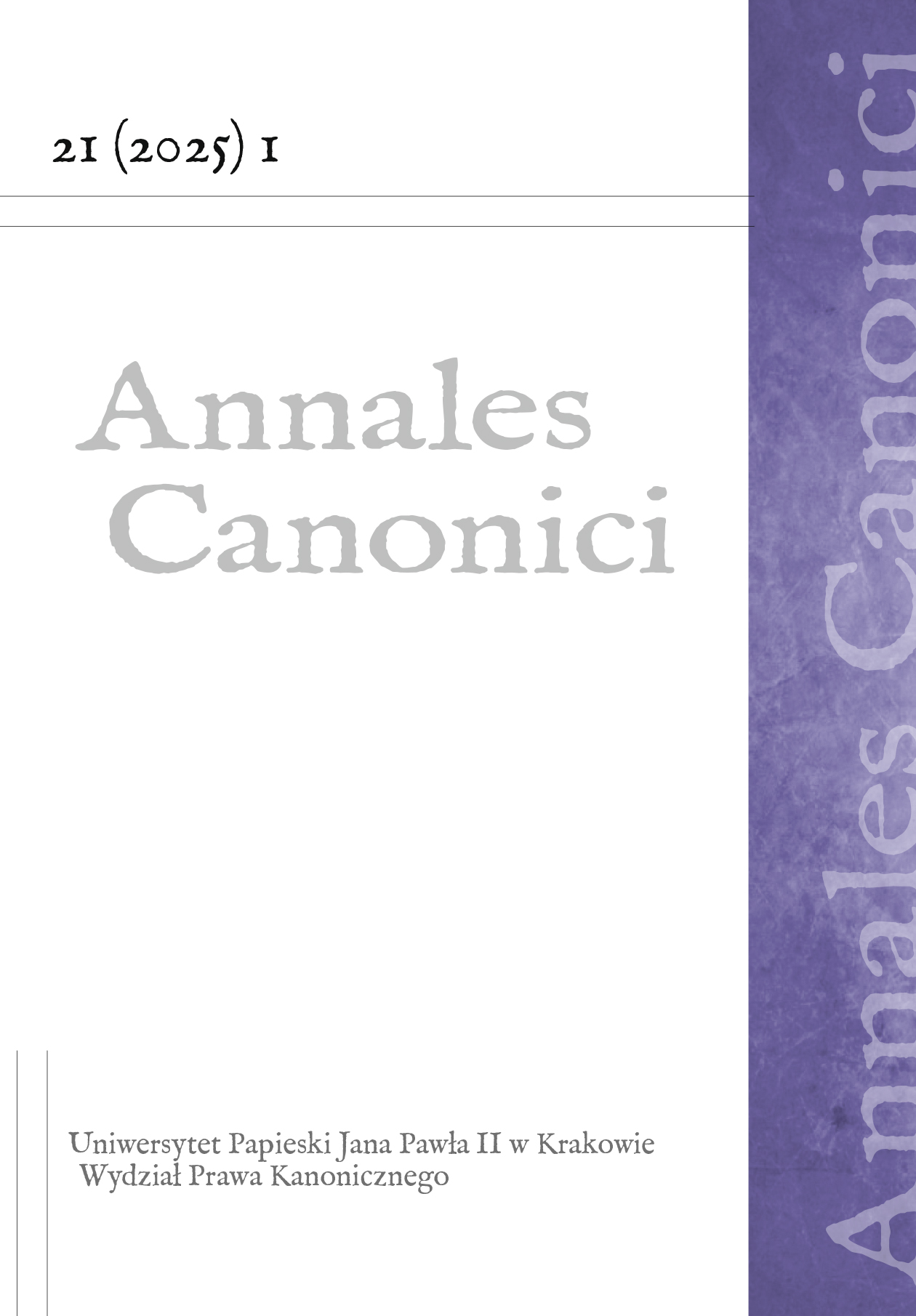On the participation of a party’s legal representative in their examination in canonical proceedings – an analysis based on a case study
DOI:
https://doi.org/10.15633/acan.21102Keywords:
church tribunal, procurator, advocat, can. 1534, can. 1561, can. 1483Abstract
This paper examines whether a party’s procurator can be present during the party’s interrogation in trials before a church tribunal. The study is based on an analysis of the provisions of the Code of Canon Law, with particular reference to canons 1534 and 1561. The author questions the interpretation of the diocesan court, which, in a particular case, refused the participation of a procurator in the questioning of a party, relying on only the literal wording of canon 1561. The article presents a rich argumentation in favor of the author’s position based on systemic and functional interpretation, pointing out the necessity of the appropriate application of the rules on witnesses to the questioning of parties, and provides other arguments that this interpretation better achieves the goals of the canon law system, including the protection of the rights of the faithful. In addition, the article discusses the possibility of ad hoc appointment of a procurator as an advocate, which could solve the problem of his presence during the interrogation. The article concludes that the tribunal’s decision not to allow an attorney to participate in the party’s interrogation was wrong.
References
Ad can. 88 § 4, „Communicationes” 10 (1978), s. 269.
Code of Canon Law Annotated: Prepared under the Responsibility of the Instituto Martín de Azpilcueta, ed. E. Caparros, M. Thériault, J. Thorn, H. Aubé, 2nd ed., rev. and updated of the 6th Spanish language edition, Montréal 2004.
Codex Iuris Canonici Pii X Pontificis Maximi iussu digestus Benedicti Papæ XV auctoritate promulgatus, 27.05.1917, „Acta Apostolicæ Sedis” 9 (1917) pars 2, s. 1–593.
Kodeks prawa kanonicznego promulgowany przez papieża Jana Pawła II w dniu 25 stycznia 1983 roku. Stan prawny na dzień 18 maja 2022 r. Zaktualizowany przekład na język polski, zatwierdzony przez Konferencję Episkopatu Polski, Poznań 2022.
Kroczek P., The Art of Legislation: the Principles of Lawgiving in the Church, Kraków 2017.
Morawski L., Zasady wykładni prawa, Toruń 2002.
Pogorzelski W. A., Klasyczny rachunek zdań. Zarys teorii, Warszawa 1975.
Rosen K. H., Discrete Mathematics and Its Applications, New York 2019.
The Canon Law Letter & Spirit: A Practical Guide to the Code of Canon Law, London 1995.
Downloads
Published
Issue
Section
License
Copyright (c) 2025 Kinga Karsten

This work is licensed under a Creative Commons Attribution 4.0 International License.
Authors who publish with this journal agree to the following terms:
- Authors retain the copyright and full publishing rights without restrictions, and grant the journal right of first publication with the work simultaneously licensed under a Creative Commons Attribution 4.0 International License that allows others to share the work with an acknowledgement of the work's authorship and initial publication in this journal.
- Authors are able to enter into separate, additional contractual arrangements for the non-exclusive distribution of the journal's published version of the work (e.g., post it to an institutional repository or publish it in a book), with an acknowledgement of its initial publication in this journal.
- Authors are permitted and encouraged to post their work online (e.g., in institutional repositories or on their website) prior to and during the submission process, as it can lead to productive exchanges, as well as earlier and greater citation of published work (See The Effect of Open Access).

